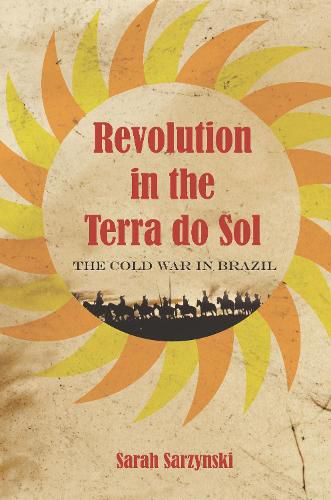Readings Newsletter
Become a Readings Member to make your shopping experience even easier.
Sign in or sign up for free!
You’re not far away from qualifying for FREE standard shipping within Australia
You’ve qualified for FREE standard shipping within Australia
The cart is loading…






Sarah Sarzynski’s cultural history of Cold War-era Brazil examines the influence of revolutionary social movements in Northeastern Brazil during the lead-up to the 1964 coup that would bring the military to power for 21 years. Rural social movements that unfolded in the Northeast beginning in the 1950s inspired Brazilian and international filmmakers, intellectuals, politicians, and journalists to envision a potential social revolution in Brazil. But in the wake of the Cuban Revolution, the strength of rural social movements also raised fears about the threat of communism and hemispheric security.
Turning to sources including Cinema Novo films, biographies, chapbook literature, and materials from U.S. and Brazilian government archives, Sarzynski shows how representations of the Northeast depended on persistent stereotypes depicting the region as backward, impoverished, and violent. By late March 1964, Brazilian Armed Forces faced little resistance when overthrowing democratically elected leaders in part because of the widely held belief that the violence and chaos in the backward Northeast threatened the modern Brazilian nation. Sarzynski’s cultural history recasts conventional narratives of the Cold War in Brazil, showing how local struggles over land reform and rural workers’ rights were part of broader ideological debates over capitalism and communism, Third World independence, and modernization on a global scale.
$9.00 standard shipping within Australia
FREE standard shipping within Australia for orders over $100.00
Express & International shipping calculated at checkout
Sarah Sarzynski’s cultural history of Cold War-era Brazil examines the influence of revolutionary social movements in Northeastern Brazil during the lead-up to the 1964 coup that would bring the military to power for 21 years. Rural social movements that unfolded in the Northeast beginning in the 1950s inspired Brazilian and international filmmakers, intellectuals, politicians, and journalists to envision a potential social revolution in Brazil. But in the wake of the Cuban Revolution, the strength of rural social movements also raised fears about the threat of communism and hemispheric security.
Turning to sources including Cinema Novo films, biographies, chapbook literature, and materials from U.S. and Brazilian government archives, Sarzynski shows how representations of the Northeast depended on persistent stereotypes depicting the region as backward, impoverished, and violent. By late March 1964, Brazilian Armed Forces faced little resistance when overthrowing democratically elected leaders in part because of the widely held belief that the violence and chaos in the backward Northeast threatened the modern Brazilian nation. Sarzynski’s cultural history recasts conventional narratives of the Cold War in Brazil, showing how local struggles over land reform and rural workers’ rights were part of broader ideological debates over capitalism and communism, Third World independence, and modernization on a global scale.